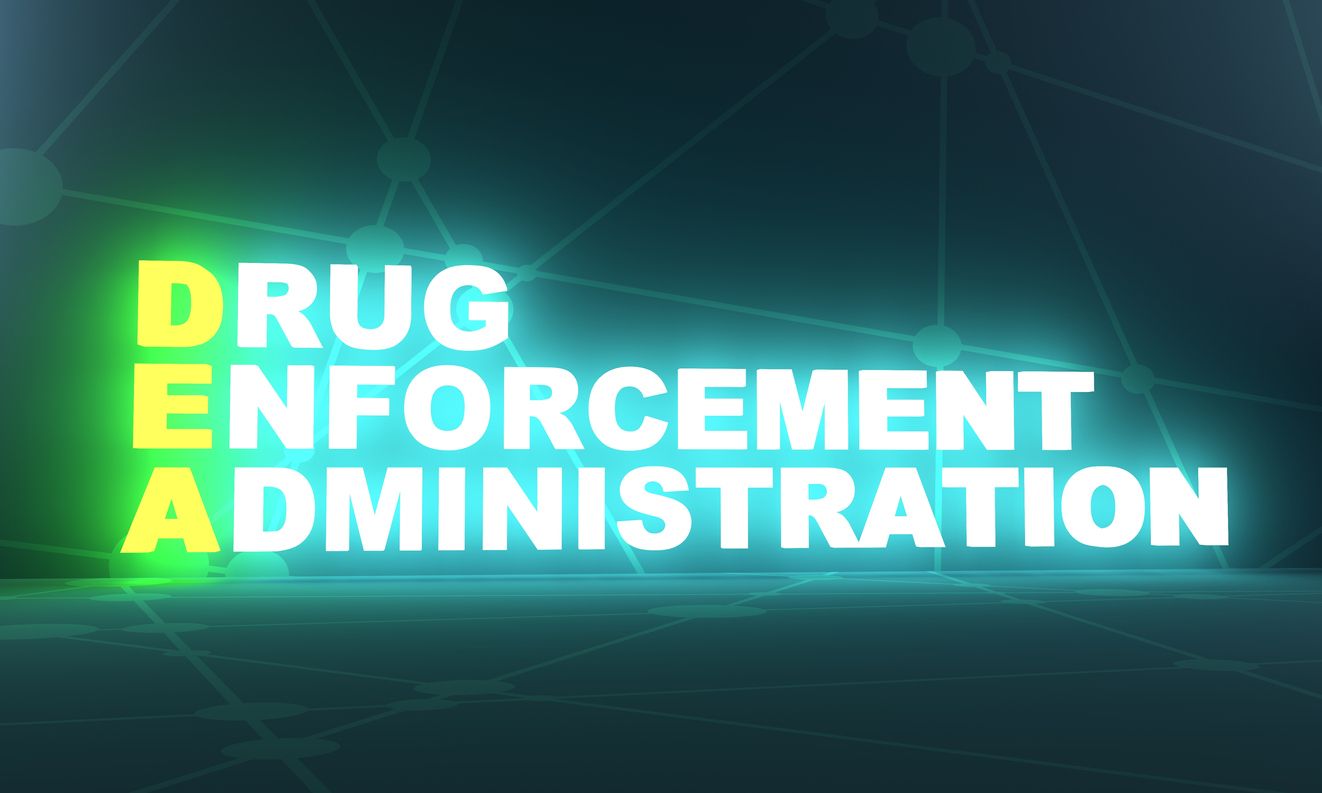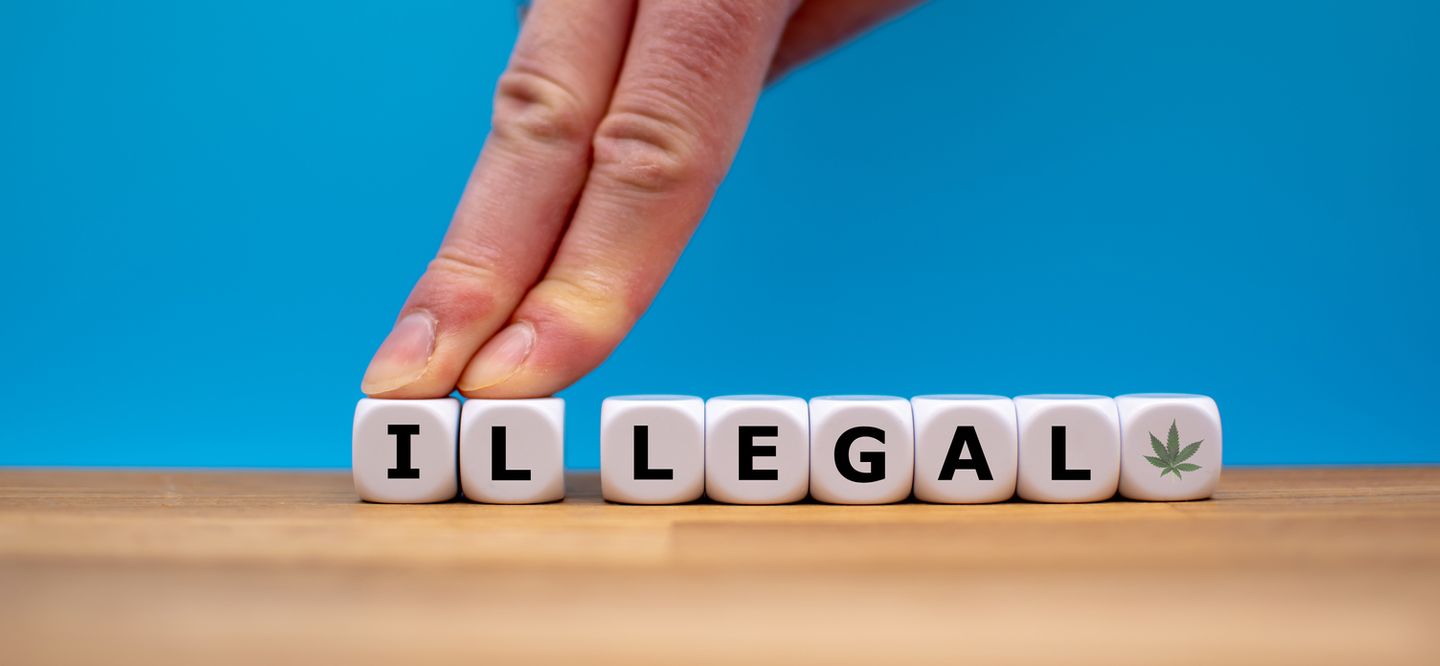DEA says that legal states have smaller black markets for cannabis

For years advocates worldwide have fought for the rights of cannabis consumers, and now that we have several regions that have chosen to implement legalization, it’s shining some light on how legislation impacts local black markets. One study conducted by the DEA has now revealed that US states with some form of legalization have much smaller black markets.
What is the black market?
A black-market dispensary or vendor is a seller of cannabis or other regulated goods. These stores sell unregulated and untested products to unsuspecting consumers, while often doing their best to maintain the appearance of a legitimate dispensary. This sort of dispensary does not pay taxes, does not offer reliable employment to those that they hire, and they put consumers at risk by enticing them to make illegitimate purchases of cannabis or derived goods.
The research
The Drug Enforcement Agency released a performance report submission that says that state-level cannabis legalization leads to an abrupt drop in sales at illegal dispensaries. Included with the report is a rundown of DEA enforcement efforts over the last year, and an official prediction of what can be expected to happen in the near future.
The DEA report points to Florida as a prime example of this trend, a state that legalized medical cannabis back in 2017. Unfortunately, the region did not allow any cannabis products that exceeded 10% THC, which is the cutoff for legal medical products, but this small shift alone was enough to greatly increase demand for low-level THC goods.
Included in the report is a statement that acknowledges the fact that while low THC product demand has steadily increased, the introduction of a dispensary that carries only medical products is not enough to quell the needs of more seasoned recreational consumers, forcing them to remain loyal to the black market.
They also eluded something that most enthusiasts and law enforcement already know, which is that having such a restrictive maximum is ripe for abuse since there is no reliable way for law enforcement agencies to detect THC content within a reasonable time frame, which means, that many dispensary locations in the region likely have illegal cannabis goods on hand. There is just no way to tell for sure in an efficient way that could be used to study the situation further.
The official DEA report acknowledges two separate issues that have been of major concern to consumers. The first being that customers will most often prefer to traverse legal avenues whenever possible leading to a decrease in demand from the black market. The second is found in the wording of the report. If you look carefully, you will notice that every statement is followed by insinuations like “until we legalize” and “when it is legalized.” Both of which seem to imply that even the top dogs of the US Drug Enforcement Agency have come to the realization that this shift is inevitable.
It is no longer a matter of if, but when we will see this major change. Now the only thing left to figure out is how and when it will happen, as most consumers knew that this was inevitable thanks to the growing trend of legalization.
Why this is a good thing
Many view legalization as a significant tool that can be used to combat the potential for tainted products and other health concerns for consumers, but that isn’t the only positive thing that can come from marijuana reform. Of course, regulation leads to cleaner, purer products, but it also paves the way for more reliable information to make its way to customers.
If those two benefits weren't enough to have you convinced that this is a good thing, then the next thing to take into consideration is the economy. A black-market dispensary doesn’t play by the rules. They sell products at much lower prices, do not pay taxes on sales, and those who are employed by these illegal facilities have absolutely no job protection if they were to fall ill, or find themselves suddenly out of work.
The states and countries that have chosen to legalize weed are raking in millions of dollars in revenue each and every year. The introduction of each new dispensary can add anywhere from 10-100 new cannabis jobs, and every step of the way, the government and the economy benefit from a sudden influx of fresh, new money that can be used wherever it’s needed most.
Last but not least, is the prison and court systems, and those in the United States are overcrowded. Once cannabis becomes legal, most regions begin an expungement process that allows those with minor criminal records to either be released earlier than their sentencing date or to be free of convictions that can interfere with their ability to find meaningful work, and that ultimately leads to a better quality of life.
In conclusion
It’s likely still going to be quite a while before all Americans are able to access a legal marijuana dispensary. However, this is excellent news for advocates, consumers, and the economy. When the highest-ranking government officials tasked with cracking down on the black market are saying that this change is inevitable, you can rest assured in knowing that it’s probably going to happen sooner, rather than later.


